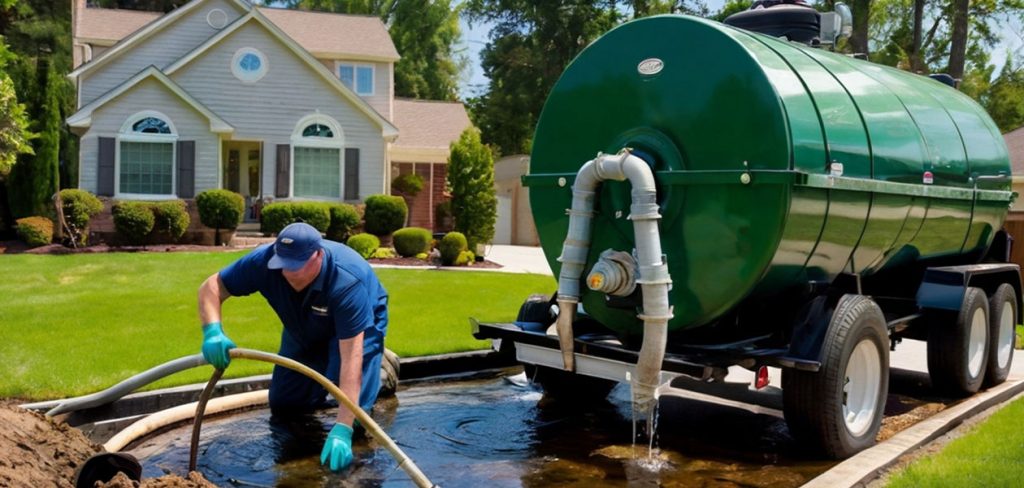As the cold weather sets in, many homeowners forget about their septic systems, assuming they’re out of sight and out of mind. But here’s the truth: winter can be tough on your septic system. The cold temperatures, snow, and ice can all take a toll, potentially causing problems that could lead to costly repairs. Following some essential maintenance tips is crucial to ensure your septic system stays in top shape through the winter. So, how can you keep things running smoothly while the snow piles up? Let’s dive into some of the best practices for septic system maintenance during winter.
Insulate Your Septic Tank and Pipes
Think of your septic tank and pipes like pipes inside your home: they need to remain warm so that they do not freeze. If your septic tank or the pipes heading to it freezes, it will be a terrible situation. When water cannot freely flow, it may trigger backups, slow drainage, and even system failure. So, what should you do? For starters, insulate everything around your septic system. You can do it by piling straw and hay around the septic tanks or using foam insulation that keeps things warm. Another good thing is to tape up the pipes with heat tape so they don’t freeze that easily.
Avoid the Overuse Of Garbage Disposal
Winter is full of holidays, family meals, and excess cooking, but remember, you shouldn’t abuse your garbage disposal. We know tossing food scraps down is tempting, but overloading your septic system with waste can lead to blockages or backups, especially in the colder months. It helps to be careful what one flushes down the drain during winter. Please do not use garbage disposal; instead, make sure to compost food items and dispose of them in the trash so the pressure does not increase on it more than it should.
Maintain Vigilance Over the Usage of Water
It’s easy to get carried away with extra laundry loads, long showers, and running the dishwasher multiple times, especially when you’re stuck inside due to the cold. In winter, the ground is frozen, so your system might be unable to process the excess water as efficiently as it could during warmer months. Try to reduce your water consumption as much as possible. Space out showers, run appliances only when full, and constantly avoid running water.
Inspect for Leaks and Damage
Inspect your septic system before the snow starts falling. In winter, leaks can become bigger problems, especially if water from a leak freezes and causes further damage. Even tiny cracks or minor leaks can result in large problems down the road; hence, catching them in their early stages is essential. If you feel anything is amiss, including a wet spot around the septic tank or a foul odor near your drain field, seek a professional immediately. Early intervention can help you save time, money, and a huge headache.
Monitor Your Drain Field for Snow
Your drain field is supposed to filter wastewater from your septic tank. In the winter, snow, and ice buildup can block the field and prevent proper drainage. This can cause backups, frozen pipes, and many other septic problems. Periodically check your drain field to ensure it’s not covered by snow or ice, which would interfere with things running smoothly. If you notice any snow accumulation, gently remove the same to allow air to circulate. Do not drive or park on your drain field, as the added weight would cause damage. Simple maintenance helps prevent major issues later.
Pump Your Septic Tank Before Winter Hits
Now’s a good time to pump your septic tank, especially if you haven’t done it in a while. Generally, a septic tank must be pumped every 3-5 years. Winter is one of the best times to do so, as pumping the tank eliminates the sludge and waste that makes your system work inefficiently. By attending to this before the winter sets in, you avoid dealing with backups or slow drainage during the winter. Plus, taking care of septic tank issues before they become emergencies is much easier. Schedule a pumping service early in the season for peace of mind.
Know When to Call a Professional
Winter can be rough on your septic system, and sometimes you need professional help. If you start noticing that something’s off, such as some bad odors, slowly draining, or gurgling sounds, do not delay until it worsens. You will avoid a major mishap by catching the issue early. A professional septic service provider can inspect your system, clean it, and repair any issues before they snowball into costly problems. Don’t hesitate to call an expert if you’re unsure about the health of your septic system. It’s better to be proactive than wait for things to freeze or back up.
Conclusion
Maintaining your septic system during the winter doesn’t have to be complicated, but it does require some attention. By insulating your tank and pipes, reducing water use, and monitoring your system’s health, you can prevent issues and ensure your septic system keeps running smoothly throughout the cold months. Remember, call a professional for advice or service if you are in doubt. Winter is tough enough without the added stress of septic system problems, so take these steps to protect your home and system. You’ll be glad you did when spring rolls around and your septic system still works like a charm. Stay warm, stay safe, and keep your septic system in shape this winter!

